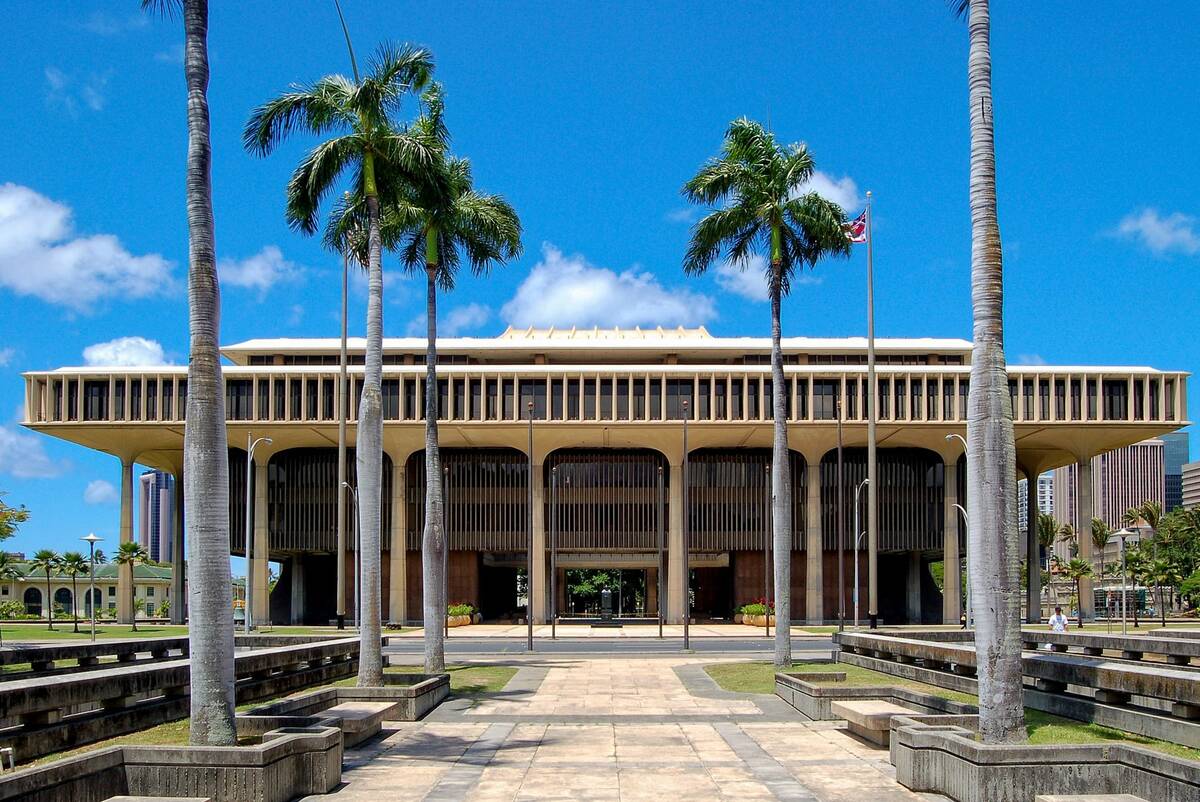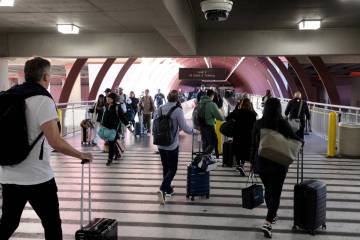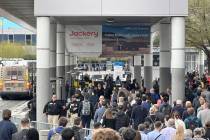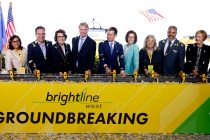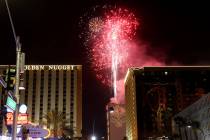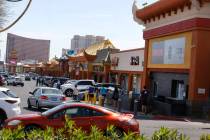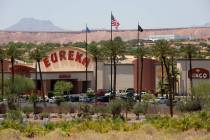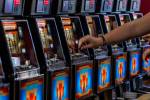‘A lot of aloha’ for NV: Chang says ad ban not meant to stop Hawaiians from visiting
The Hawaii state senator whose proposed legislation would ban gambling advertisements in the Aloha State said it’s an effort to generate funds to fight problem gambling — not discourage Hawaiians from visiting Nevada.
In an exclusive interview with the Review-Journal, Sen. Stanley Chang, D-Honolulu, said he’s hopeful Senate Bill 935 will make its way to the governor’s desk so that companies offering gambling excursions can be taxed and the revenue generated is used to treat or counsel compulsive gamblers.
“Hawaii is one of the few states with no state resources to treat problem gambling and gambling addiction,” Chang said in a telephone interview. “Given that this is such a serious societal problem, given that there are no funds going to it currently, we thought this would be one way to raise funds for this critical societal need.”
The bill was reviewed Thursday by the Senate’s Committee on Commerce and Consumer Protection and forwarded to the full Senate in a 3-1 vote. If it is approved in its second reading, it would be forwarded to the Senate’s joint Ways and Means and Judiciary committees for consideration before being brought to a full Senate vote, which would move the legislation to the state’s House of Representatives. If approved by both houses, it would next go to Democratic Gov. Josh Green for his signature.
Hawaii’s legislative session is scheduled to end May 4.
Constitutional issues
Initially, a key portion of Chang’s bill specifically listed gambling advertisements from Nevada casinos. Hawaii Attorney General Anne Lopez, in a two-page pre-filed memorandum, recommended against banning ads specific to Nevada casinos and the committee agreed.
The reference was eliminated last week from consideration because of fears the bill would be found unconstitutional and in violation of the First Amendment of the U.S. Constitution and Hawaii’s Constitution.
As the bill stands now, a new section will be added taxing operators of transportation and lodging suppliers an unspecified percentage to create a Department of Human Services fund to finance problem gambling research and treatment.
Chang noted there are restrictions on advertisements — particularly broadcast ads — for tobacco, alcoholic beverages and contraceptives and he did not think a ban on gambling ads would be problematic. Chang said he felt an advertising ban on gambling destinations and products would be appropriate since Hawaii is one of two U.S. states without gambling or lotteries.
A similar controversy occurred in Nevada in 2006 and 2007, when Clark County district attorneys proposed a ban on advertising legal brothels of Nevada’s rural counties in Clark County where prostitution is illegal. In that case, U.S. District Court Judge James Mahan upheld the American Civil Liberties Union of Nevada’s position that the brothels should be allowed to advertise.
Chang says he has “a lot of aloha” for Nevada, and has visited Las Vegas many times with family and friends.
“I happen not to be a gambler, but I have a lot of friends who do gamble. I think for both gamblers and nongamblers, it (Las Vegas) is a fantastic place to visit,” he said.
“But because Hawaii is a nongambling state, there’s a false belief that problem gambling and gambling addiction are not problems here. Of course, we know that’s not true.”
Chang estimates 26,000 Hawaii residents suffer from compulsive gambling disorders and that national problem gambling hotlines receive around 2,000 calls a year from Hawaii residents. He said the economic impact of problem gambling on Hawaii is estimated at $26 million a year.
Information corrected
One of the sections of the legislation that was removed in committee was a preface that specifically named Boyd Gaming Corp. as a leading company attracting Hawaiian gamblers to its downtown Las Vegas casino properties such as California Hotel, Fremont and Main Street Station.
“This is our first time working on this issue this year,” Chang said. “The bill was and is a work in progress. I think the reason why Boyd was named in the preface was because we don’t have good data on gambling revenues from Hawaii residents in other jurisdictions, including Nevada.
“As we know, out of all the gambling companies in Nevada, Boyd has a disproportionate share of the Nevada market. It was really more of an illustrative example to use them since they have made it clear that they don’t break out Hawaii-specific numbers in their financials, but we do know 300,000 made trips to Las Vegas every year. So we have circumstantial evidence of how much gambling is occurring by Hawaii residents and that was why Boyd Gaming was specifically named.”
The legislation stated that Hawaiians spent $600 million at Boyd’s downtown Las Vegas properties. But the company said Boyd’s downtown Las Vegas segment generated $215 million for all of 2022, according to the company’s fourth-quarter earnings report earlier this month, and not all of that revenue came from Hawaii residents.
A representative of Boyd’s Vacations Hawaii subsidiary attended the committee meeting last week and corrected the information in pre-filed testimony.
Chang figures the debate over the legislation has generated considerable discussion about problem gambling issues, and he’s happy the bill made it through the committee.
“A lot of bills don’t even get a hearing so the fact that it got a hearing and it passed the first committee is a positive step,” he said. “But as you might know, less than 10 percent of bills make it to final passage. Most bills will probably die, and that’s regardless of subject matter or the topic they address, no matter how important they might be.
“I think it’s important that we have this conversation,” Chang said.
Contact Richard N. Velotta at rvelotta@reviewjournal.com or 702-477-3893. Follow @RickVelotta on Twitter.



